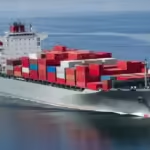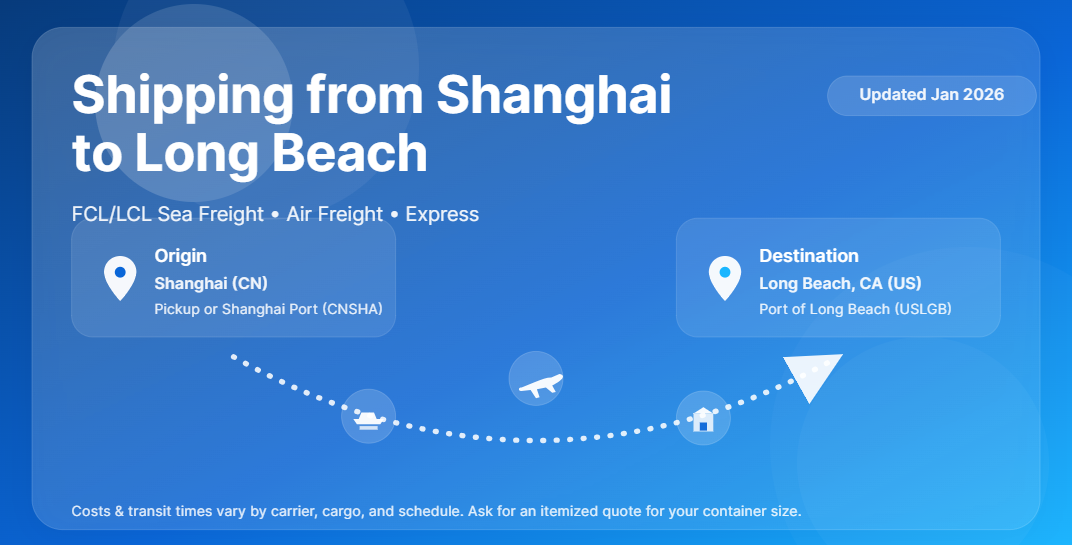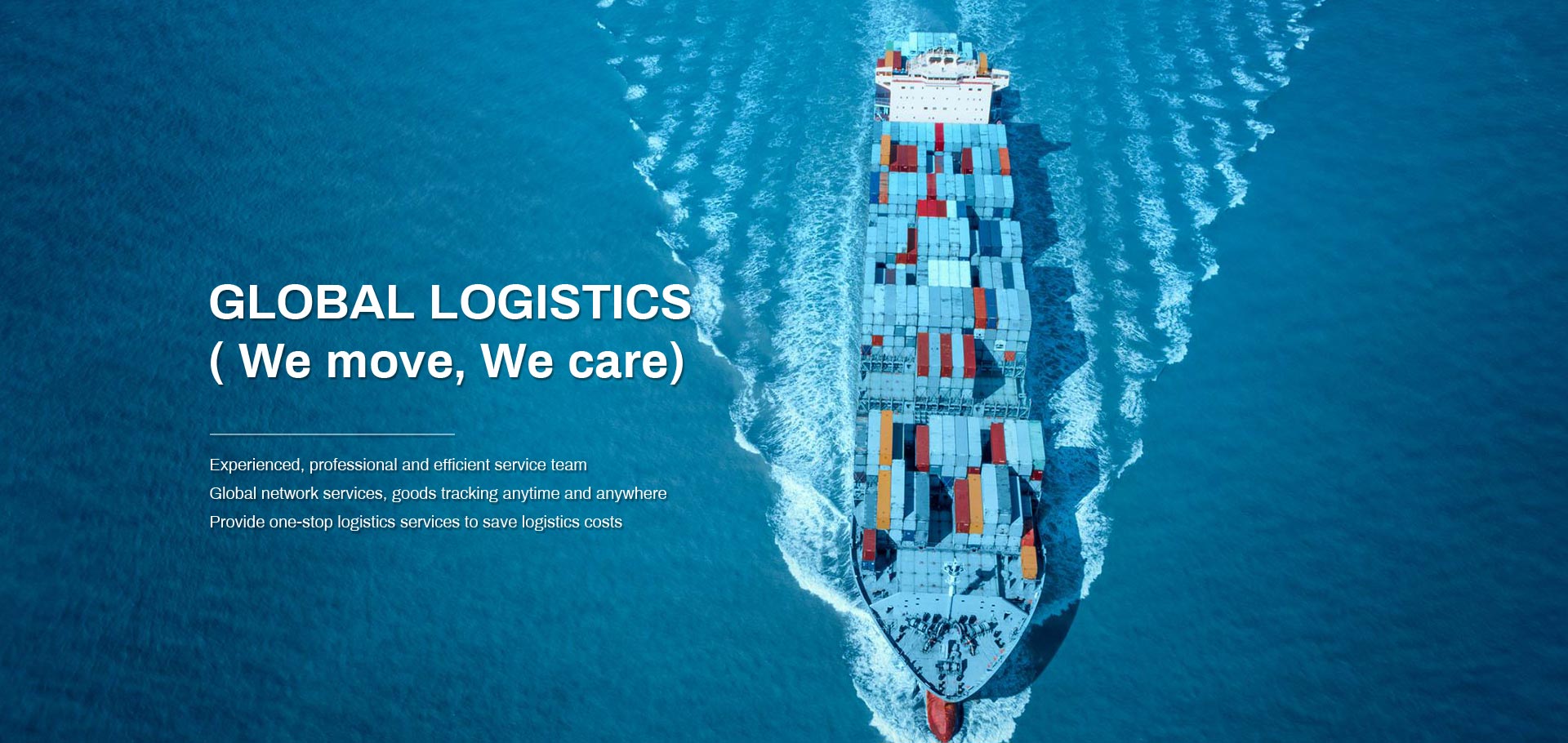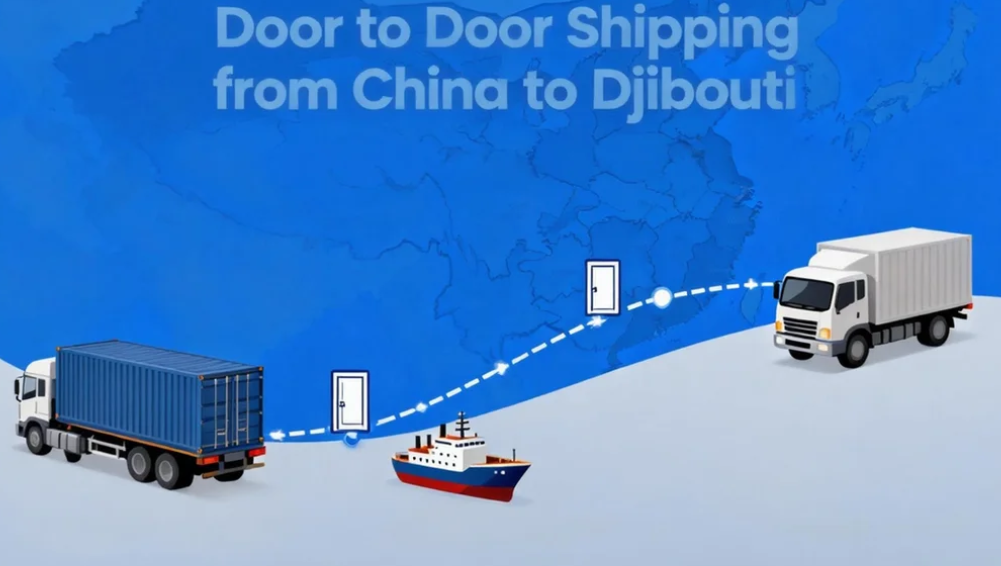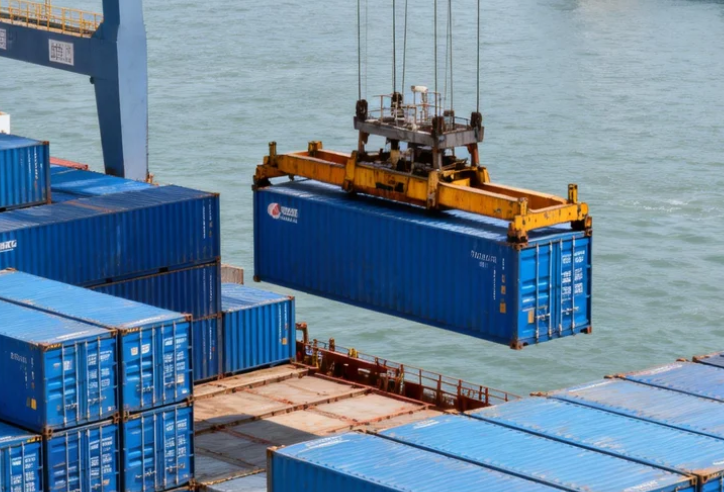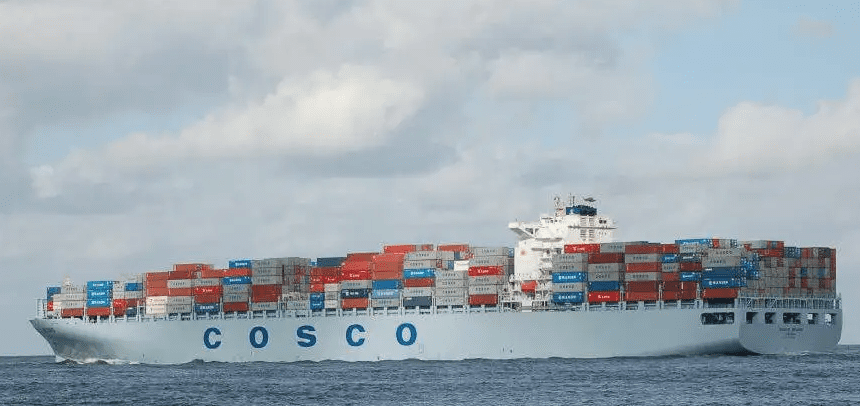Are you worried about unpredictable container shipping costs from China to Switzerland? With international logistics evolving rapidly, especially in the wake of recent global disruptions, Swiss importers face new challenges: volatile rates, changing regulations, and shifting transit times. As someone responsible for your company’s supply chain, how can you stay on top of these changes and avoid costly surprises?
In this latest guide, you’ll find everything you need to navigate container shipping from China to Switzerland with confidence. We’ll cover up-to-date FCL (Full Container Load) and LCL (Less than Container Load) shipping rates, reveal essential surcharges and fees, summarize the post-pandemic logistics landscape, and offer strategic tips to lower your shipping expenses in 2025 and beyond. This resource is designed for both first-time importers and established Swiss businesses looking to optimize their freight strategy.
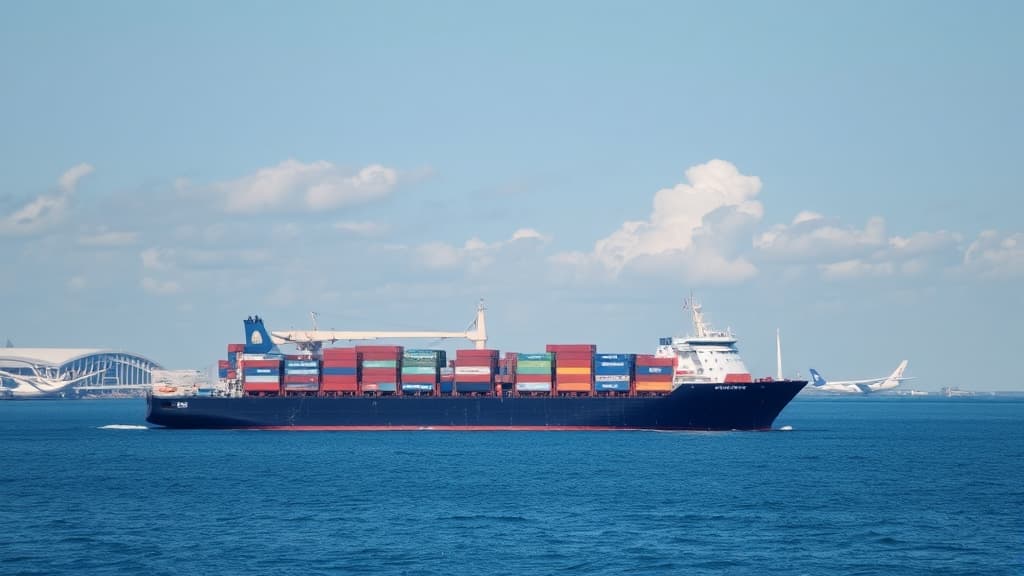
Key Factors Impacting Container Shipping Costs from China to Switzerland
When planning your shipment from China to Switzerland—or any other international route—several factors can dramatically affect your total container shipping cost. Understanding these key variables is crucial for accurate budgeting and timely deliveries.
Shipping Mode: Sea Freight (FCL, LCL), Air Freight, and Rail
- Sea Freight remains the most economical option for bulk and large-volume shipments. Shippers can choose between Full Container Load (FCL)—where the entire container is reserved for one consignee—or Less than Container Load (LCL), ideal for smaller shipments consolidated with others.
- Air Freight offers the fastest transit times (typically 3–7 days to Switzerland) but is significantly more expensive. It’s optimal for high-value, urgent, or lightweight cargo.
- Rail Freight is a growing alternative for Eurasian routes, balancing speed and cost, but generally still less common than sea or air for China–Switzerland traffic due to limited direct lines and intermodal handling.
Container Size and Load Specification
Costs are influenced by container size: standard 20ft, 40ft, and 40ft High Cube (40HQ) containers are most common. Cargo weight, volume, and whether you require special containers (reefer, open-top, etc.) also affect pricing.
Supply Chain Disruptions, Fuel Prices, and Peak Season Impacts
- Global Events: Geopolitical tensions, port congestion, labor strikes, or pandemic-related restrictions can drive up rates and cause delays.
- Fuel Prices: Bunker adjustment factors (BAF) cause rate fluctuations depending on global fuel costs.
- Peak Season: Rates spike during high-demand periods, especially before major holidays (e.g., Chinese New Year, European Christmas).
Origin and Destination Ports and Local Handling Requirements
- The distance between your origin (e.g., Shanghai, Shenzhen, Ningbo) and destination (e.g., Basel, Zurich) ports impacts the base rate.
- Local charges such as terminal handling, customs clearance, and last-mile delivery can vary significantly between ports and service providers.
FCL vs. LCL: Which Option Fits Your Needs?
Choosing between Full Container Load (FCL) and Less than Container Load (LCL) depends on your shipment volume, cargo type, timeline, and budget. Each method has distinct implications for cost, transit, and handling.
Definitions
- Full Container Load (FCL): The entire shipping container (20ft, 40ft, or 40HQ) is exclusively used for one shipper’s cargo. Seals remain intact from the shipper’s site to the consignee’s location.
- Less than Container Load (LCL): Your goods are consolidated with those from other shippers in a single container, and you pay only for the space you use (measured per cubic meter or cbm).
Shipment Size and Type
- FCL is best for shipments above ~15 cubic meters or when you have fragile, large, or high-value goods that benefit from exclusive handling.
- LCL is preferred for smaller, less time-sensitive shipments where cost savings outweigh slight increases in transit time due to consolidation and de-consolidation.
Cost per Cubic Meter/CBM; Consolidation vs. Direct Shipping
- FCL: Fixed flat fee regardless of capacity utilization, most cost-effective for near-full containers.
- LCL: Priced based on the exact measured volume (cbm), ideal for small shipments but less economical as volume increases.
Table: FCL vs LCL Pros and Cons
| Feature/Criteria | FCL (Full Container Load) | LCL (Less than Container Load) |
|---|---|---|
| Best for | 15+ cbm, high value, sensitive cargo | <13 cbm, small batches, test orders |
| Cost Structure | Flat per container (best when full) | Pay per cbm (volume-based) |
| Transit Time | Faster, direct | Slightly longer due to consolidation |
| Handling/Security | Exclusive, less handling (less risk) | Mixed, higher risk of damage/misplacement |
| Flexibility | Less (entire container needed) | More (ship smaller amounts flexibly) |
| Customs/Documentation | Simpler, all for one shipper | May be complex, shared with others |
2025 Shipping Rate Estimates: China to Switzerland
Shipping rates between China and Switzerland fluctuate with market conditions, fuel prices, and seasonal trends. Below are sample spot rates (Q1/Q2 2025*) for standard dry cargo containers from top China ports to major Swiss entry points. Rates are indicative and subject to change—always request an updated quote for your specific cargo.
Sample Quotes: 20ft, 40ft, 40HQ Containers (USD, port-to-port, estimate*)
| China Port | Swiss Port | 20ft Container | 40ft Container | 40HQ Container |
|---|---|---|---|---|
| Shanghai | Basel | $2,120 | $3,950 | $4,100 |
| Shenzhen | Zurich | $2,210 | $4,070 | $4,220 |
| Ningbo | Basel | $2,160 | $4,020 | $4,180 |
*Rates were sourced from industry benchmarks such as the Freightos Baltic Index and Container xChange as of late Q1–early Q2 2025. These rates exclude local charges, customs clearance, and final-mile delivery costs, which can add $700–$2,000 per container depending on Swiss services required.
Cost Trends and Industry Forecasts
- 2023–2024: Container rates saw softening following pandemic spikes but remained above pre-2020 averages.
- 2025 Outlook: Gradual market normalization expected; however, persistent disruptions (Red Sea crisis, labor negotiations, fuel volatility) may keep some upward pressure on rates.
- Advice: Early booking and partnering with flexible forwarders can hedge against volatility, especially during peak season.
Important Surcharges and Additional Fees
When shipping containers from China to Switzerland, several surcharges and additional fees may significantly impact your overall logistics budget. Understanding these charges upfront ensures transparent costing and avoids surprises upon arrival.
Main Surcharges Explained
- BAF (Bunker Adjustment Factor): A fuel surcharge, BAF is adjusted periodically based on fluctuating global bunker oil prices. It compensates carriers for fuel cost changes.
- THC (Terminal Handling Charges): THC covers the cost of loading/unloading containers at both origin (e.g., Shanghai, Ningbo, Shenzhen) and destination ports (Basel, Zurich). Each port sets its own schedule.
- Customs Clearance, Documentation, VAT, and Duties: Swiss customs requires payment of duties, import VAT (generally 7.7%), and fees for processing the necessary import documentation. Precise duty rates vary by product (HS code classification).
- Detention and Demurrage: Detention fees are charged if you keep the container outside the port (for unloading or storage) beyond the free period. Demurrage applies for containers left inside the port area past the allowed days.
- Warehousing and Storage: Additional charges if containers or goods must be stored at the terminal or a third-party warehouse before pickup or after customs processing.
Table: Sample Cost Breakdown and Main Surcharges (Per 20ft Container)
| Cost Component | Typical Range (USD) | Notes |
|---|---|---|
| Ocean Freight (Base Rate) | $2,100–$2,250 | Line-haul from China to Switzerland port |
| BAF (Fuel Surcharge) | $80–$150 | Varies monthly with oil prices |
| THC (Origin + Destination) | $200–$350 | Avg. $100–$180 per port |
| Customs Clearance (Switzerland) | $120–$300 | Swiss customs brokerage fee only |
| Import Duties & VAT | Varies | 7.7% VAT + duties by HS code; consult Swiss customs calculator |
| Detention & Demurrage | $30–$70/day | Charged if you exceed free days (typically 3–7 days free) |
| Documentation/Admin | $50–$120 | Bills of lading, manifest, etc. |
| Warehousing/Storage | $80–$150/day | If needed, depends on duration and facility |
*All values are estimates. Final figures may differ based on cargo specifics, shipping line, and port authorities.
20ft Container Shipping Cost from China to Switzerland
Cost Breakdown for 20ft Containers (Q1/Q2 2025 Estimates)
| Expense Category | Typical Range (USD) | Details |
|---|---|---|
| Freight (Port-to-Port) | $2,100–$2,250 | Rate fluctuates by season and service |
| BAF & Fuel Surcharges | $80–$150 | Monthly adjustment by carriers |
| THC (Both Ends) | $200–$350 | Port loading/unloading in China and Switzerland |
| Customs Clearance (CH) | $120–$300 | Paid to brokers/agents |
| Documentation Fees | $50–$120 | BL, certificates, additional paperwork |
| Detention/Demurrage (if any) | $30–$70 per day | Only if exceeding free days |
| Warehousing (if required) | $80–$150 per day | Temporary storage at Swiss facilities |
| Import VAT & Duties | 7.7% VAT + product-specific duty | Calculated on CIF value; consult customs calculators |
Total Typical Cost (Excl. VAT/Duties): $2,550–$3,170 per 20ft container
Actual door-to-door rates will be higher depending on delivery distance, unloading, and last-mile transport specifics.
40ft Container Shipping Cost from China to Switzerland
Cost Breakdown for 40ft Containers (Q1/Q2 2025 Estimates)
| Expense Category | Typical Range (USD) | Details |
|---|---|---|
| Freight (Port-to-Port) | $3,950–$4,100 | Standard 40ft dry cargo |
| BAF & Fuel Surcharges | $120–$200 | Higher for larger containers |
| THC (Both Ends) | $350–$500 | Proportional to container size |
| Customs Clearance (CH) | $120–$300 | Same as 20ft option |
| Documentation Fees | $50–$120 | BL, certificates, etc. |
| Detention/Demurrage (if any) | $30–$70 per day | After allotted free days |
| Warehousing (if required) | $120–$200 per day | Depends on cargo and storage duration |
| Import VAT & Duties | 7.7% VAT + product-specific duty | By product; calculated on CIF value |
Total Typical Cost (Excl. VAT/Duties): $4,640–$5,220 per 40ft container
Again, door-to-door pricing will reflect delivery address and any special handling requirements.
If you need a custom quote or tailored logistics solution, contact Dantful International Logistics for highly professional, cost-effective service from China to Switzerland.
Read More:
- Shipping From China To Netherlands
- Shipping From China To Spain
- Shipping From China To Germany
- Shipping From China To France
- Shipping From China to Italy
- Shipping From China To Poland
- Shipping From China to United Kingdom
Expert Tips to Optimize Shipping Costs and Processes
Shipping from China to Switzerland can be complex and costly, but proactive planning and the right partnerships can result in significant savings and greater peace of mind. Here’s how you can optimize your logistics:
Partner With Professional Freight Forwarders (Dantful’s Advantages)
Teaming up with an established freight forwarder, such as Dantful International Logistics, ensures you receive expert guidance, transparent pricing, and reliable service. Dantful specializes in tailored solutions—balancing cost efficiency with high service standards—due to deep industry experience and a strong carrier network. Key advantages include:
- Professional cargo handling from China’s top ports
- Cost-competitive, negotiated ocean and air rates
- Full suite of value-added services (customs, insurance, tracking)
- Single point of contact for clear communication
Optimize Container Utilization/Consolidation
Efficient use of container capacity dramatically reduces unit shipping costs. If your cargo can nearly fill a 20ft or 40ft container, opt for FCL (Full Container Load). For smaller loads, use LCL (Less than Container Load) services to consolidate with cargo from others—minimizing unused space and extra charges.
Book in Advance, Avoid Peak Seasons
Advance booking secures better rates and space allocation—especially vital during peak shipping seasons, such as pre-holiday rush (October–January) and pre–Chinese New Year. Off-peak shipments often benefit from more stable rates and shorter transit times.
Leverage Efficient Customs Clearance
An experienced forwarder should offer customs clearance expertise for both China and Switzerland, reducing delays and the risk of compliance errors. Prepare all necessary documentation (commercial invoice, packing list, certificates, etc.) in advance.
Compare All-in-One Solutions
Modern freight forwarders offer door-to-door logistics, insurance, real-time cargo tracking, and clear cost breakdowns in a single package. This all-in-one approach eliminates hidden fees and streamlines the entire import process, making it far easier for new and regular importers alike.
Choosing the Right Freight Forwarding Partner
Selecting a reliable freight forwarding partner is a mission-critical step in international shipping. The right partner ensures seamless transport, smooth customs clearance, and proactive communication throughout the journey.
Key Factors to Consider When Choosing a Freight Forwarding Partner
When evaluating options, importers should assess:
- Industry Experience & Credentials: Look for a proven track record in China–Europe trade, credible licenses, association memberships, and relevant certifications.
- Network Scope: Capabilities to cover all major China ports (Shanghai, Ningbo, Shenzhen, etc.) and delivery to Swiss entry points like Basel and Zurich.
- Cost Transparency: Clear, itemized quotes with full disclosure of all surcharges and local charges. Avoid partners who cannot break down fees.
- Service Offerings: End-to-end solutions including FCL, LCL, air freight, multimodal, insurance, warehousing, and customs clearance.
- Customer Support: Responsive support, multi-language teams, real-time shipment updates, and a dedicated account manager.
Why Choose Dantful International Logistics?
Dantful International Logistics stands out as the preferred partner for businesses importing from China to Switzerland due to the following unique strengths:
- Expertise You Can Trust: Years of experience in international logistics, paired with deep knowledge of both Chinese export routes and Swiss import procedures.
- Customized Solutions: One-stop international logistics coverage—FCL, LCL, air freight, customs, warehousing, and last-mile delivery—tailored to your needs.
- Competitive Rates: Leveraging a strong carrier network to offer cost-effective transport, even during volatile market conditions.
- Efficiency & Reliability: Advanced tracking systems, proactive exception management, and robust cargo insurance options ensure peace of mind.
- Dedicated Support: A personal logistics expert assigned to every client, ensuring you receive prompt, clear, and proactive updates at every stage.
Contact Dantful International Logistics today to start your risk-free, streamlined, and highly professional China–Switzerland shipping experience.
FAQs
Q:What’s the quickest & cheapest way to ship to Switzerland?
A:For standard cargo, sea freight is usually the most cost-effective option, while air freight is the fastest. Choosing LCL (Less than Container Load) or consolidated shipments can further reduce costs for smaller volumes.
Q:Are there restrictions on goods shipped to Switzerland?
A:Yes. Switzerland restricts or prohibits items such as hazardous materials, certain chemicals, counterfeit products, weapons, and some agricultural goods. Always check the current Swiss import regulations before shipping.
Q:How do I ensure compliance with Swiss customs regulations?
A:Prepare accurate commercial invoices, packing lists, and certificates of origin. Work with an experienced freight forwarder familiar with Swiss customs to ensure proper classification and documentation.
Q:What insurance is recommended for high-value shipments?
A:All-risk cargo insurance is recommended for high-value or sensitive goods to cover potential loss or damage during transit.
Q:Can Dantful assist with door-to-door delivery and local support?
A:Yes. Dantful International Logistics offers comprehensive door-to-door shipping solutions, including customs clearance and local delivery support in Switzerland.

Young Chiu is a seasoned logistics expert with over 15 years of experience in international freight forwarding and supply chain management. As CEO of Dantful International Logistics, Young is dedicated to providing valuable insights and practical advice to businesses navigating the complexities of global shipping.





